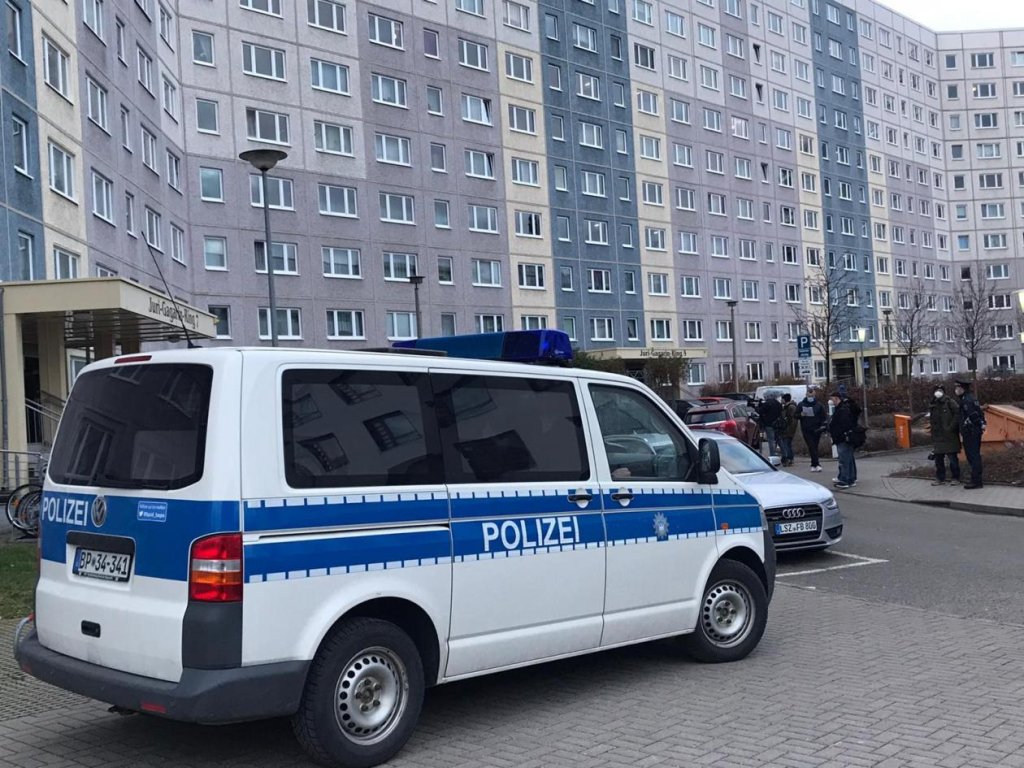The deportation of a family from Russia, sheltering in Germany under the auspices of church asylum has been met with criticism. The family was sent back to Spain under the EU's Dublin Regulation, which governs where asylum claims are to be processed.
The Russian family was deported despite adhering to the guidelines of church asylum in Germany. The principle of church asylum is considered to be somewhat of a legal gray area but typically results in deportation orders not being enforced. In this case, church asylum was terminated by authorities.
The family's case of church asylum had been duly reported to the Federal Office for Migration and Refugees (BAMF), and there were no reports of any legal compliance failure playing a role in the decision to deport the family.
However, the case qualified as a so-called Dublin Regulation case; the family had traveled to Germany while on a visa from another EU member state -- Spain.
This meant that the family would therefore be required to be transferred to this EU member state for the actual processing of the asylum application.
The case also attracted attention because of the timing of the deportation; in another week, the timeframe of the Dublin Regulation applicable to this case would have expired, which would then automatically transfer the duty of care and the processing of the asylum case to German authorities.
Police entering church premises on a Sunday
Last Sunday (May 12), police gained access to the church premises in the federal state of Lower Saxony, where the family of four had been staying, using an official search warrant.
Police officers then removed the family from the grounds of the church and took them to Cologne/Bonn airport, from where they were flown to Barcelona, Spain.
BAMF said it had examined the personal circumstances of each individual family member, stating that there was no case of hardship found among the family members that would justify a ban on deportation.
The Ministry of the Interior in Lower Saxony meanwhile confirmed that all aspects of the deportation order had been executed in an orderly manner.

BAMF decrees no hardship to justify stay
According to reports, the Russian family, consisting of the two parents, their adult son and their 16-year-old daughter, were traveling through Germany on a visa issued to Spain when the father and son learned that they were to be called up to serve in Russia's war against Ukraine.
The two men expressed they did not support the war and therefore did not want to take part in it, which is why they applied for asylum in Germany.
According to numbers published by Eurostat, they were hoping to join more than 13,000 Russian nationals who have sought asylum in the European Union in response to being drafted into the war.
Furthermore, the family explained that the wife had suffered serious mental health issues in response to learning her husband and son would be drafted, and that she was receiving medical treatment.
The daughter meanwhile had integrated into a local school and was on the trajectory to graduate, while the church also said that the family had become part of the local community of Uelzen.
Nevertheless, the BAMF said that these circumstances did not amount to a case of hardship under EU guidelines.

Uproar over deportation
The pastor of the parish in question, Tobias Heyden, said that this "seizure and arrest of the family on a Sunday and the disregard for church asylum per se shocks and frightens us deeply."
He added that since their request for asylum had been rejected and church asylum had been ruled out in March, there had been no further communication from BAMF until police came to the church premises unannounced.
The Lower Saxony Refugee Council also criticized the deportation, saying the deportation of the family marked the breaking of a social taboo.
Since 1998, all state governments in Germany had refrained from forcibly entering church sanctuaries, the Lower Saxony Refugee Council said, making this instance a turning point.
It pointed out that even though the decision to deport the family had been handed down from the Federal Office for Migration and Refugees in Berlin, it was the state government of Lower Saxony that enforced it by agreeing to issue the warrant and booking the deportation flights.
"The Ministry of the Interior has the power to order or stop deportations at any time," the Refugee Council said in a statement.
The Ministry of the Interior responded to the criticism by saying that there is no "right to church asylum."
"The state legal system does not recognize spaces belonging to the state territory in which legally required measures cannot be enforced," it stated.
Also read: Rejected asylum application: What are my options?
Church asylum evictions on the rise
Last year reportedly saw the highest number to date of cases of church asylum in Germany, with just over 1,500 cases in total being recorded.
In 2015, as hundreds of thousands of refugees and migrants arrived in Germany, an agreement to respect church asylum in most instances was reached between BAMF and the two major church denominations in Germany.
Since then, there had only been one eviction from church asylum, which resulted in a subsequent deportation in the western city of Gelsenkirchen in 2020.
However, that scenario began to change in 2023.
As far as a major working group between the two church denominations knows, the next deportation was due to occur in July 2023 in the western city of Viersen, where a Kurdish couple was pegged to be deported to Iraq. That deportation, however, failed in that case.
Then in February 2024, a Syrian national was deported from church asylum in the federal state of Rhineland-Palatinate to Denmark, again under the EU's Dublin rules, where he was facing a prison sentence.
Since July this year, however, there have been seven cases of evictions, attempted evictions or threats of eviction in cases of church asylum across Germany.
Also read: Church asylum: Nun acquitted in Germany
with dpa, EPD
